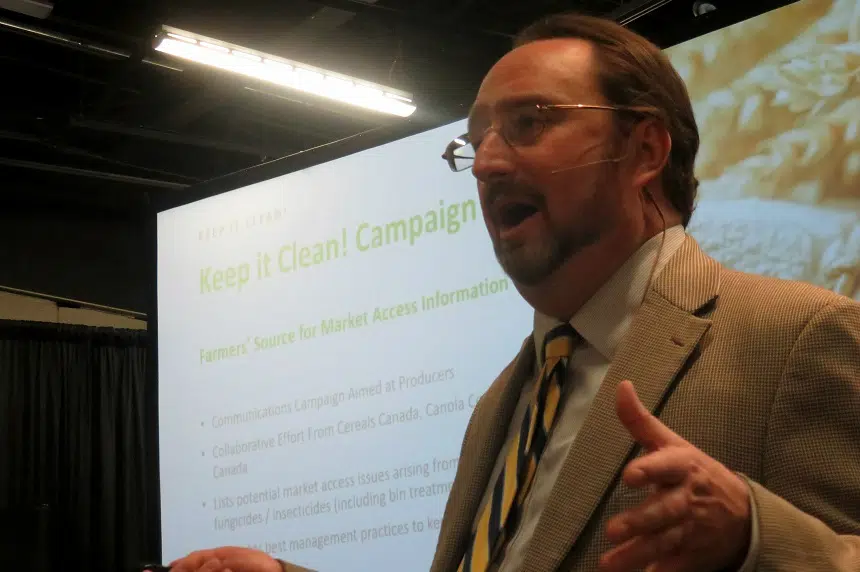Global markets are becoming more sensitive to the presence of pesticides in crop imports, and farmers in Saskatchewan and across Canada need to pay attention to those concerns.
That was the message from Cam Dahl, president of Cereals Canada, to a crowd at the annual Crop Production Show on Monday in Saskatoon.
Dahl emphasized the need for farmers to use pesticides responsibly, and follow the label directions to the letter, to avoid causing an international market disruption.
“We have countries, and activists, that are looking for reasons to put up trade barriers,” he said after his presentation.
“My message to farmers is we need to look at ways of ensuring that we’re not giving them the hooks to hang a trade barrier on.”
He noted the rationale has already been used by Italy to erect barriers on Canadian durum wheat, which cut imports from over one million tonnes to below 400 thousand tonnes after concerns were raised over the health and safety of Canadian crops.
He also pointed to the rise of protectionist populism in other European markets, and the recent trade spat between Canada and the U.S. during NAFTA negotiations.
Dahl said some markets are instituting a zero-tolerance policy for the presence of certain pesticide residues, which can make the margin of error for Canadian farmers very thin since some products are measured in parts-per-billion.
He noted there is frustration among crop producers because Canadian farmers are typically well below the scientifically-established safe maximums for pesticides like glyphosates.
But the criticism isn’t based in science, he said.
“It’s impossible to meet all these demands when we move away from science,” Dahl said.
“The best thing farmers can do is ensure they’re following the labelling. The right rate at the right time, following the pre-harvest interval for products that are applied in fall, ensuring glyphosate isn’t applied to green crops.”
He added that farmers must not underestimate the impact of their crops on the market, no matter how small they may be.
“What they do on their farm matters, and it matters to export markets,” Dahl said.
“There needs to be a bigger awareness in the agriculture community that we’re not just small little bit-players … Those farm practices matter, and not just on the macro level.”







